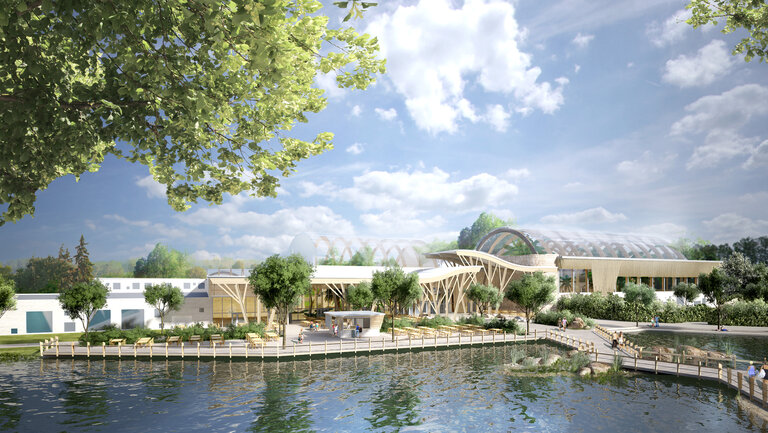Alyssa Weskamp, project manager and sustainability adviser at Drees & Sommer, explains the importance of the new usage profile. ‘In comparison with urban neighborhoods, a resort has a different mix of uses. It is not really residential and the proportion of commercial space is much less. As a result, it was particularly important for us to develop an appropriate profile.’ Unlike individual hotels, for example, open spaces are much more to the forefront of holiday parks. Taking into consideration the specific requirements, the project resulted in a unique combination of criteria from the usage profile for urban neighborhoods and the buildings usage profiles for hotels and residential buildings. At buildings level, for example, the criteria of thermal comfort, deconstruction and recycling capability as well as requirements for optimum usage and management are examined. In relation to the usage profile for urban neighborhoods, on the other hand, criteria such as urban climate, open space, participation and social infrastructure are relevant.
Park Allgäu is committed to sustainability
During construction of the new holiday park in the Allgäu region of Germany, particular attention was paid to the integration of architecture and infrastructure into the existing natural environment and landscape. A lot of different sustainability aspects are taken into account on the 180-hectare site with 75 percent open space – both in its development and in day-to-day operation. Energy is supplied through a local heat supply system, while well water is used for the swimming-pool. Eco-friendly construction management through bird's nest facilities and bat boxes is also part of the measures taken, along with accessibility, environmentally compatible networking, modern waste management, on-site recycling, eco-sensitive and regional products and cooperation with the WWF. Park Allgäu opens in the autumn of 2018 as the sixth Center Parc holiday park in Germany.
